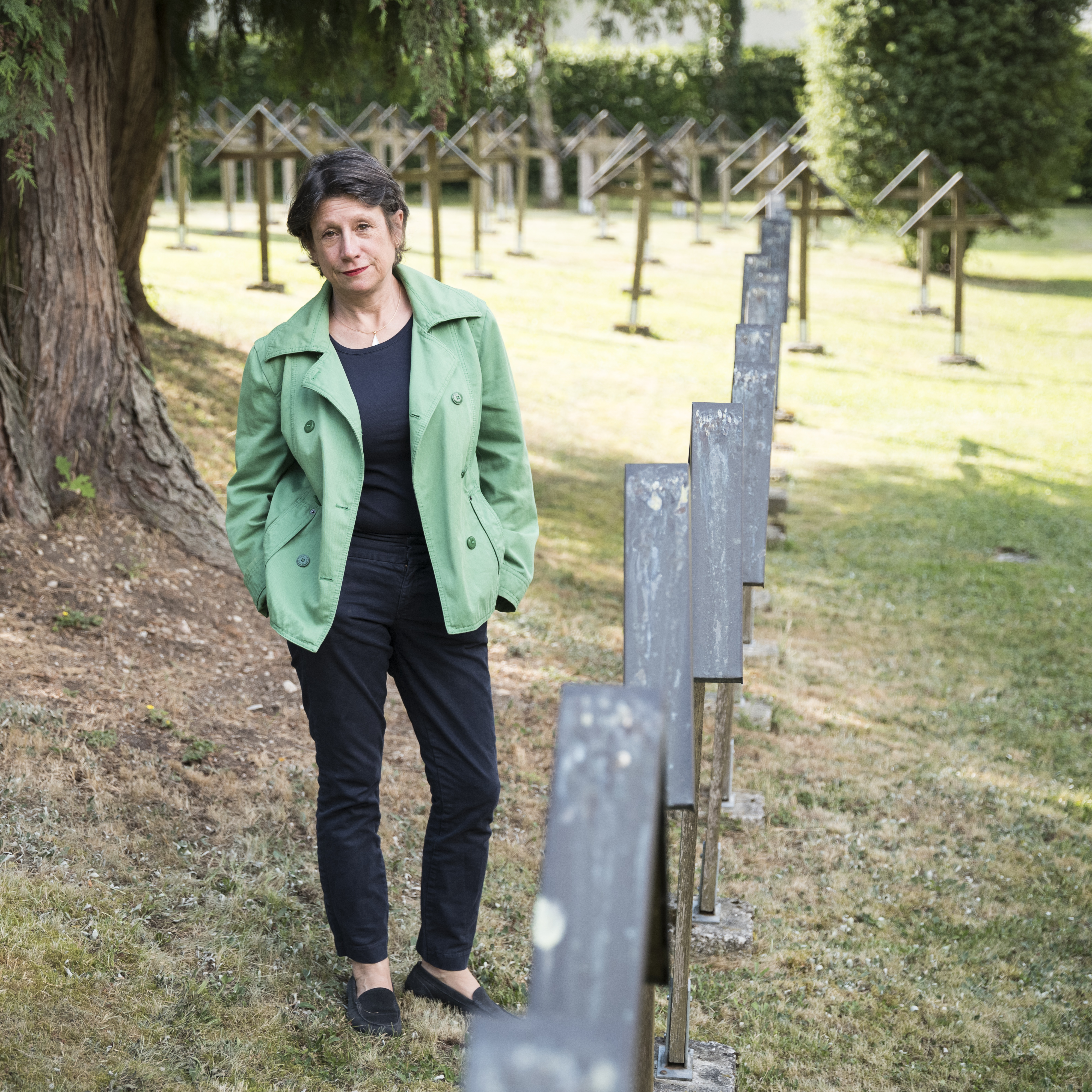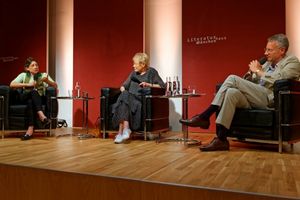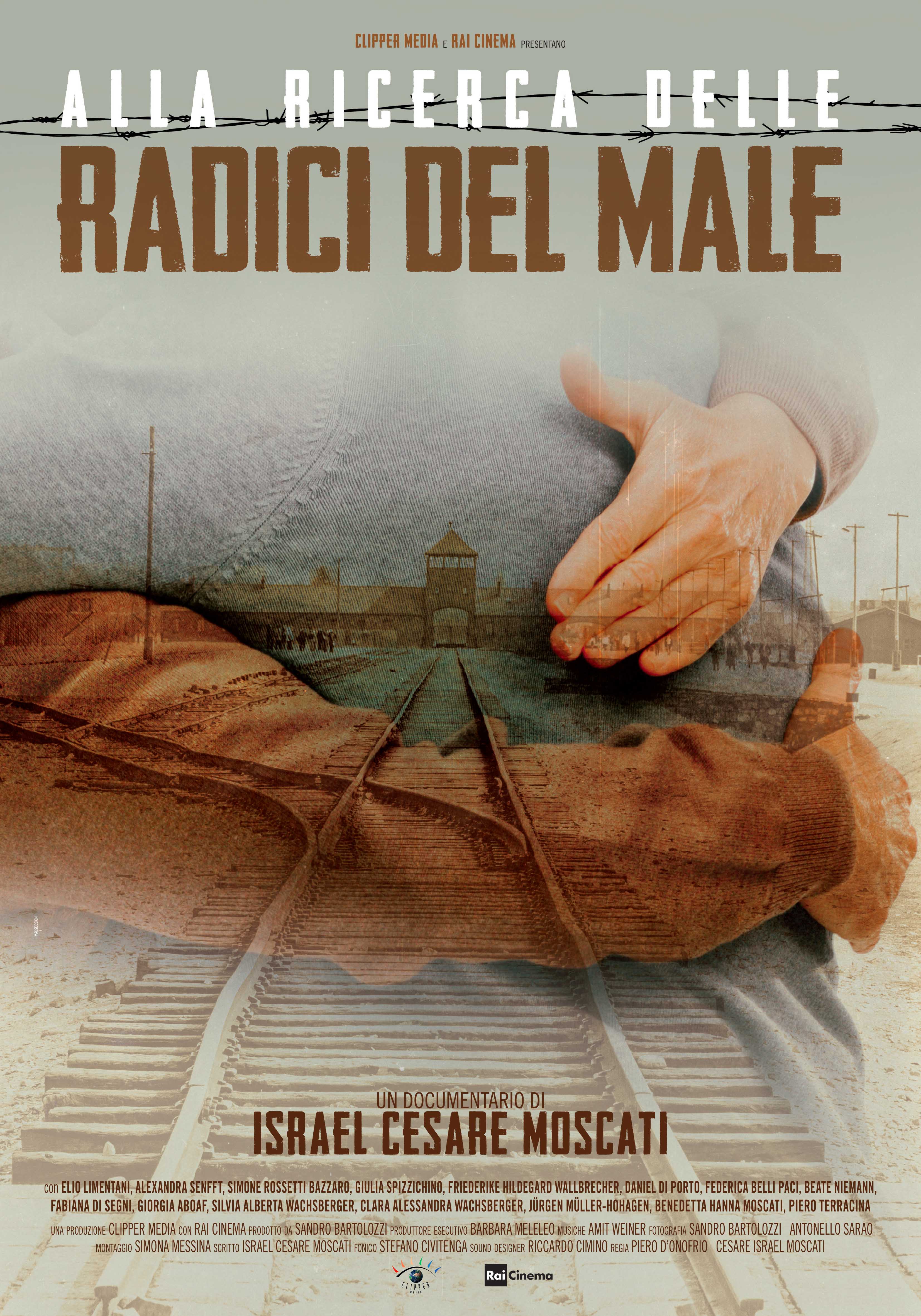Der Freiburger Hanns Elard Ludin, ein glühender Anhänger des NS-Regimes und zeichnete die Deportation Zehntausender ab. Für seine Nachkommen ist der Umgang mit seinen Taten noch immer schwierig.
Badische Zeitung, 4. September 2017 >> Weiterlesen
Condemned to Remember
An Irish Holocaust survivor recalls the terror of the past and confronts the resurgence of the hatreds that turned Europe into a wasteland.
Genres Documentary
Director Gerry Gregg
Starring Tomi Reichental
Irish Film Board
Ireland 2017
>> more
>> watch on amazon prime
Alexandra Senfft, l’héritage du silence du Troisième Reich
Près de 70 ans après sa condamnation à mort et son exécution comme criminel de guerre, la mémoire de Hanns Ludin, ambassadeur du Troisième Reich en Slovaquie, continue à peser sur ses descendants. Alexandra Senfft, sa petite-fille, a brisé le déni familial.
La Croix, François d’Alançon, 14/08/2017
>> more

Cemetery Spötting Landsberg am Lech © Maurice Weiss/Agentur Ostkreuz
Alexandra Senfft, l’héritage du silence
Près de soixante-dix ans après sa condamnation à mort et son exécution comme criminel de guerre, la mémoire de Hanns Ludin, ambassadeur du Troisième Reich en Slovaquie, continue à peser sur ses descendants. Alexandra Senfft, sa petite-fille, a brisé le déni familial.
La Croix, François d’Alançon, 14/08/2017
>> more

21.Juin 2017, Allemagne, Landsberg am Lech, Baviere, Alexandra Senfft, auteur , photographier sur la cimetire de Spttingen, avec des tombes de la deuxime guerre mondiale Cemetery Spötting Landsberg am Lech © Maurice Weiss/Agentur Ostkreuz
Breaking the family legacy of silence over the Third Reich
Nearly 70 years after being executed as a war criminal, the memory of Third Reich ambassador to Slovakia, Hanns Ludin, continues to weigh on his descendants. His granddaughter Alexandra Senfft has broken the family silence.
La Croix, François d’Alançon, 14/08/2017
>> more
Alla Ricerca Radici del Male
Ist das Geschichte oder kann das weg?
Familienerinnerungen aus dem Nationalsozialismus aufarbeiten und bewahren
Verstaubte Briefe, vergilbte Akten – wie nähert man sich derartigen Hinterlassenschaften aus dem Leben der Eltern und Großeltern? Die Aufarbeitung der eigenen Familiengeschichte in der Zeit des Nationalsozialismus ist wegen des Generationswechsels ein viel diskutiertes Thema in Wissenschaft, Literatur und Gesellschaft. Gemeinsam mit dem Literaturhaus München hat das Institut für Zeitgeschichte deshalb am 22. Juni ein Forum für alle geboten, die sich selbst ihrer Familiengeschichte nähern wollen.

Den Auftakt bildete ein Podium mit den Autorinnen Wibke Bruhns („Meines Vaters Land“) und Alexandra Senfft („Schweigen tut weh“ und „Der lange Schatten der Täter“), die sich literarisch auf die Spur ihrer Familien in der NS-Zeit begeben haben.
>>Weiterlesen https://www.ifz-muenchen.de/aktuelles/themen/familienerinnerungen/
Die Nestreiniger
Opfer und Täter während der Nazi-Herrschaft
Familiengeschichte ist Zeitgeschichte
Drei Buch-Autoren berichten, wie sie der Geschichte ihrer Familie nachgespürt haben
Süddeutsche Zeitung, 23. Juni 2017 >> Weiterlesen
Verhinderte Dialoge
Netanyahu lässt ein Treffen mit Aussenminister Gabriel platzen, weil dieser mit Regierungskritikern spricht. Mit Dialogabbruch erregt auch eine Evangelische Akademie Aufsehen. journal21.ch >> Weiterlesen
Aus dem Schatten der NS-Zeit treten
Alexandra Senfft rät zu Aufarbeitung der Gräueltaten der Vorfahren.
Münchner Merkur 18/3/2017 >> Weiterlesen

